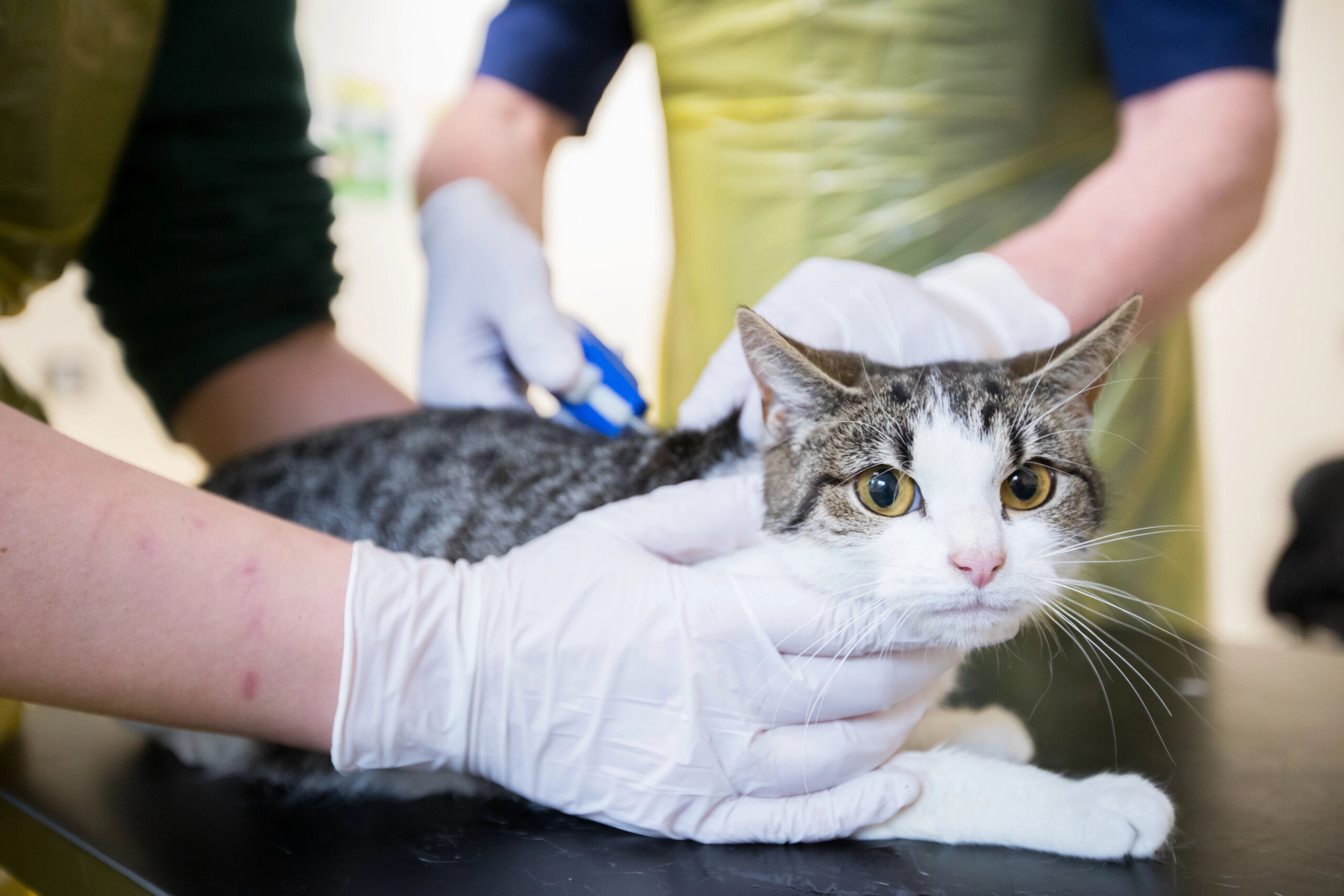
From 10th June, every pet cat in England must be microchipped as per the new legislation, but startling data from England’s largest survey of cat owners reveals up to 2.2 million cats remain unchipped.
The Cats and Their Stats Report 2024, released by Cats Protection, indicates that approximately 1.9 million cats in England are not microchipped, and around 300,000 cat owners are unsure if their pets are chipped.
Cat owners who fail to comply with the new law face fines of up to £500. To address this, Cats Protection has partnered with Battersea Dogs and Cats Home, the British Veterinary Association, the British Small Animal Veterinary Association, International Cat Care, PDSA, and the RSPCA to urgently encourage owners to microchip their cats.
Research by Cats Protection reveals that 26% of owners who haven’t microchipped their cats believe their pets don’t venture outdoors, while 19% say their cats don’t wander far when they do. Additionally, 14% believe their cats are identifiable by their collars, and another 14% simply haven’t considered microchipping.
The forthcoming 2024 PDSA Animal Wellbeing Report highlights that 16% of cat owners who haven’t microchipped their pets feel it’s unnecessary.
Madison Rogers, Head of Advocacy, Campaigns, and Government Relations for Cats Protection, commented: “Some owners think they are never going to go through the trauma of losing their pet cat, but in the last year 115,000 pet cats in England went missing and never returned home, so this is much more common than people think.
“Cats are nimble and extremely agile and can easily slip out without us noticing. It’s very easy for cats that live indoors to escape, particularly in the summer where it’s so easy to accidentally leave a window or a door ajar.”
She added: “Many lost cats live a frightening life on the streets. No food, no water, no shelter, no veterinary care, and constantly at risk of severe injury or death from many hazards such as cars and wild animals. Collars can easily drop off, become damaged so that the address details become unreadable and, if they are not quick release, can become snagged on obstacles like tree branches, causing injuries to the cat.
“In contrast, a microchip is safe, stays with your cat for its lifetime, and is linked to contact details that are stored safely in a database. Provided that owners keep the contact details up to date, then a microchip provides the very best chance of being reunited with a lost pet.”

Alice Potter, cat welfare expert at the RSPCA, added: “We have seen cats coming into our care who are sadly not microchipped and may never be reunited with their owners. On average, 11% of all cats coming into the RSPCA’s care are still not microchipped.
“We’ve also rescued cats who have been microchipped but the details haven’t been kept up-to-date, which is arguably even more frustrating as it means cats spend a long time in our care whilst we fruitlessly try to contact the owner with outdated information.
“However, we’ve also seen countless stories of cats that have been reunited with their owners thanks to a tiny microchip – showing what this change of legislation will achieve for animal welfare.”
Sandra Sinclair (pictured right with Nutmeg her cat), a teacher from Tooting in South-West London, was grateful for her cat Nutmeg’s microchip after he went missing from his home in December 2021.

“When Nutmeg went missing, we were unsure if he was maybe visiting one of his regular haunts or picking up a cheeky snack at a neighbour’s house. It wasn’t unusual for him to be gone most of the day but, after not coming home for two days, we sensed that something was wrong. The house was so empty without him, but we tried to hold on to a little flicker of hope that we would see him one day because he was microchipped.”
Her hopes were answered when a few weeks later Nutmeg was found wandering the streets of Ascot in Berkshire, some 30 miles away from his home. He was taken to Bracknell and Wokingham Cats Protection, who scanned him for a microchip and were able to return him to Sandra and her family.
“Everything just seemed to move in slow motion when Cats Protection rang me with the good news. I darted into the staff room to tell my colleagues and everyone burst into applause.
“We have no idea how he got to Ascot. Did he jump into a delivery van, or maybe someone attempted to steal him because he was so friendly? Only Nutmeg will ever know, but my family and I are just so relieved we had him microchipped.”
Cats Protection states that microchipping typically costs between £20 and £30, depending on your location in England. Pet owners are encouraged to consult with their vet to arrange this simple and essential procedure.
Further information about the benefits of microchipping can be found on the Cats Protection website at cats.org.uk/microchipping or at the RSPCA website at www.rspca.org.uk/microchipping

